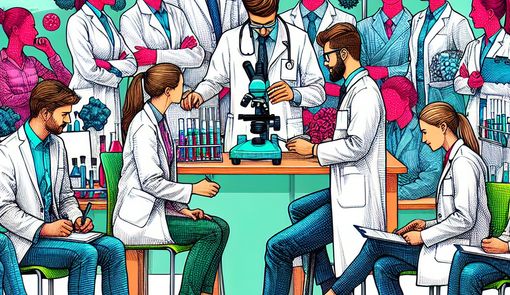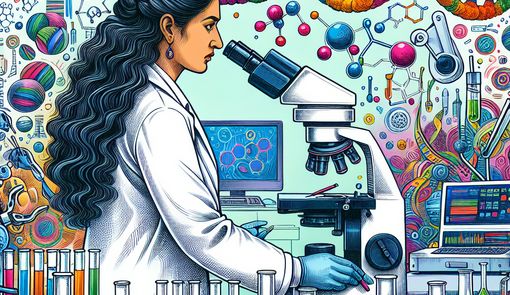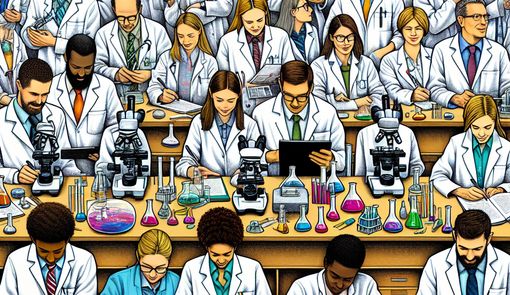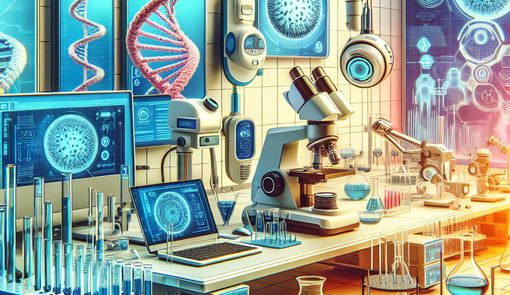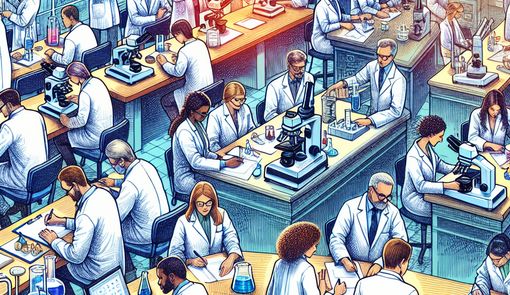Crafting the Perfect Resume for Clinical Laboratory Scientist Positions
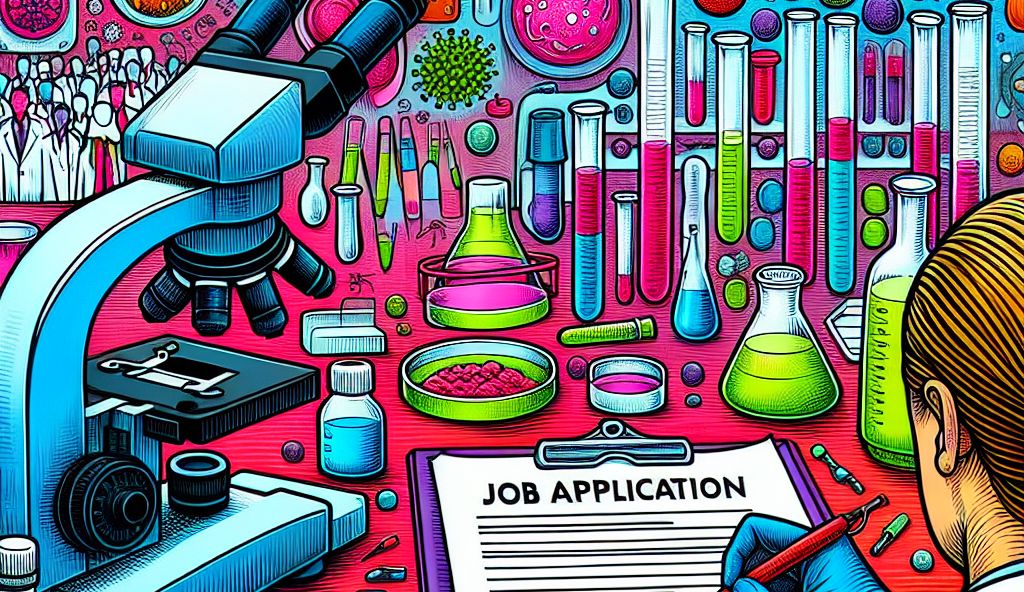
Crafting the perfect resume can be a daunting task, especially for clinical laboratory scientists who must balance a wealth of technical skills with the need to present them effectively to potential employers. The role of a clinical laboratory scientist involves a significant level of expertise in analyzing bodily fluids, tissues, and other samples to diagnose and monitor diseases. Thus, their resume must reflect their precision, attention to detail, and scientific acumen. By following a structured approach, you can create a resume that not only showcases your qualifications but also positions you as an ideal candidate for the job.
Tailor Your Resume to the Role
Before you begin writing your resume, it's critical to understand that a generic, one-size-fits-all resume won't suffice. Take the time to tailor your resume to the specific clinical laboratory scientist position you are applying for. Analyze the job description and align your resume with the required qualifications, skills, and experience. Make note of any keywords related to techniques, equipment, or specialties that are emphasized in the job listing, and ensure these are incorporated into your resume.
Format Your Resume
Contact Information
At the top of your resume, include your full name, a professional email address, phone number, and if applicable, your LinkedIn profile or professional website. This should be neatly formatted and easy for employers to find.
Summary Statement
Lead with a strong summary statement that encapsulates your most compelling professional qualifications. This should be a short, sharp pitch that captures your experience level, areas of specialization, and any key achievements that are relevant to the role.
Professional Experience
Your professional experience should be listed in reverse-chronological order, starting with your current or most recent role. For each position, provide a job title, dates of employment, the name of the employer, and a brief list of your key responsibilities and accomplishments. Use active language and quantify your achievements where possible (e.g., "Improved sample throughput by 20% through optimizing assay protocols").
Education
List your educational background, starting with the highest degree you've attained. For clinical laboratory scientists, this typically includes a bachelor's or master's degree in medical technology, clinical laboratory science, or a related field. Include any licenses or certifications you possess, such as ASCP certification, which is highly regarded in the industry.
Skills
Provide a specific section to highlight your technical and soft skills. Technical skills may include expertise in PCR, ELISA, or mass spectrometry. Soft skills could involve your ability to work collaboratively in a team or your excellent communication skills, which are crucial for relaying lab results effectively.
Showcase Your Achievements
Rather than just listing duties under each job, focus on specific accomplishments that demonstrate your impact. Have you contributed to any publications or research studies? Were you involved in the development of a new testing protocol that increased efficiency? These highlights show prospective employers your ability to contribute meaningfully to their organization.
Include Relevant Coursework and Certifications
If you have completed any particularly relevant coursework or have additional certifications that set you apart from other candidates, be sure to include them. These could be specialized courses in areas such as hematology, immunology, or microbiology, which are directly applicable to the role.
Professional Memberships and Conferences
Being a part of professional organizations or attending scientific conferences demonstrates your commitment to professional development and staying current with the latest industry trends and technologies. List any memberships or conference presentations that may bolster your resume.
Proofread and Edit
Lastly, ensure that your resume is free of errors. Typos and grammatical mistakes can detract from your professionalism and are particularly problematic in a field that values precision. Consider having a colleague or mentor in the field review your resume for both content and clarity.
Conclusion
A well-crafted resume for clinical laboratory scientist positions is more than a list of qualifications; it's a testament to a candidate's dedication to the science and their capacity to contribute to patient care through laboratory excellence. By carefully considering each section and tailoring your resume to the job at hand, you can create a powerful tool to aid in your career advancement.
Frequently Asked Questions
1. What are the key elements to include in a resume for a clinical laboratory scientist position?
In a resume for a clinical laboratory scientist position, it is essential to include key sections such as contact information, a summary statement, professional experience, education, skills, achievements, relevant coursework and certifications, professional memberships and conference participation, and a thorough proofreading.
2. How can I tailor my resume to a specific clinical laboratory scientist role?
To tailor your resume to a specific clinical laboratory scientist role, carefully review the job description to identify keywords, required qualifications, and skills. Customize your resume by highlighting experiences and skills that directly align with the job requirements. This customization increases your chances of standing out as a qualified candidate.
3. What are some examples of technical skills that are valuable for a clinical laboratory scientist?
Technical skills that are valuable for a clinical laboratory scientist include proficiency in techniques such as PCR (Polymerase Chain Reaction), ELISA (Enzyme-Linked Immunosorbent Assay), mass spectrometry, proficiency in laboratory instrumentation, data analysis software, and knowledge of laboratory safety procedures.
4. How can I effectively showcase my achievements on a resume for a clinical laboratory scientist position?
To effectively showcase achievements on a resume for a clinical laboratory scientist position, focus on quantifiable accomplishments that demonstrate the impact of your work. Highlight any publications, research studies, process improvements, or contributions to the development of new protocols that showcase your abilities and expertise in the field.
5. Why is it important to include relevant coursework and certifications on a resume for a clinical laboratory scientist?
Including relevant coursework and certifications on your resume demonstrates your commitment to continuous learning and professional development. It also showcases your specialized knowledge in areas directly related to the role, such as hematology, immunology, or microbiology, which can set you apart from other candidates.
6. What role do professional memberships and conference attendance play in a clinical laboratory scientist's resume?
Professional memberships and conference attendance indicate your engagement in the scientific community, commitment to staying updated on industry trends, and dedication to ongoing learning. Including these on your resume can enhance your credibility as a competent and proactive professional in the field.
7. How should I approach proofreading and editing my resume for a clinical laboratory scientist position?
When proofreading and editing your resume for a clinical laboratory scientist position, pay close attention to detail, grammar, spelling, and content accuracy. Consider seeking feedback from peers or mentors in the field to ensure that your resume effectively communicates your qualifications and professionalism.
Further Resources
For further assistance in crafting the perfect resume for clinical laboratory scientist positions, here are some valuable resources that can provide additional guidance and tips:
- American Society for Clinical Laboratory Science (ASCLS)
- The ASCLS offers resources for professionals in the clinical laboratory science field, including resume tips and career development advice.
- Clinical Laboratory Management Association (CLMA)
- The CLMA provides resources and networking opportunities for laboratory professionals, which can be beneficial in enhancing your resume and career prospects.
- American Medical Technologists (AMT)
- The AMT offers certification and continuing education resources for medical laboratory professionals, which can add value to your resume.
- PubMed
- Access scientific publications and research studies to stay informed about advancements in the clinical laboratory science field, which can be useful for showcasing your knowledge and expertise on your resume.
- LinkedIn Learning
- Explore online courses on laboratory techniques, leadership skills, and resume writing to further develop your skills and enhance your resume's effectiveness.
- ResumeGenius
- Use resume templates and resume writing guides from ResumeGenius to create a professional and tailored resume for clinical laboratory scientist positions.
- Certification of Medical Laboratory Scientists (ASCP Board of Certification)
- Obtain information on ASCP certification requirements and processes to strengthen your credentials and increase your competitiveness in the job market.
These resources offer a wealth of information and support to help you refine your resume, highlight your expertise, and stand out as a qualified candidate in the field of clinical laboratory science.

